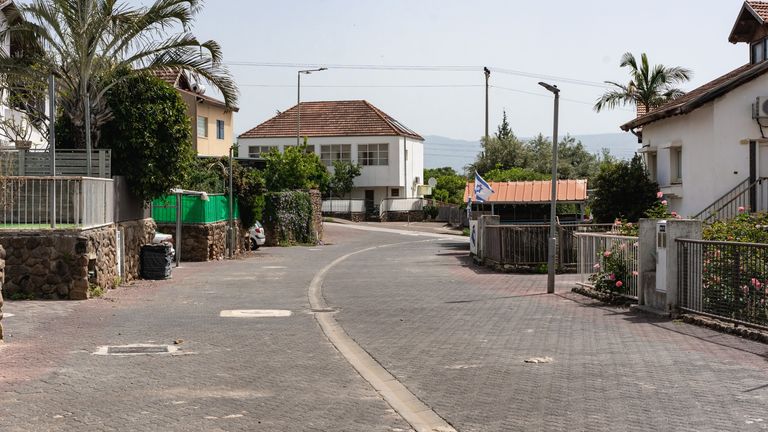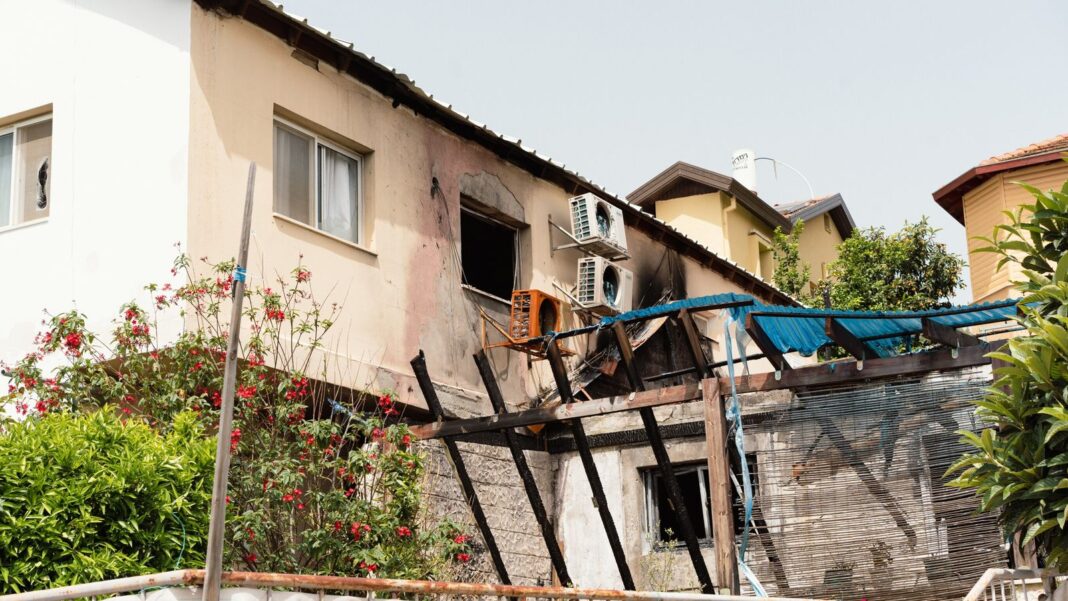The roads through northern Israel along the border with Lebanon are empty of cars.
It is unnervingly quiet.
Since the 7 October attacks by Hamas the area has been under bombardment from Hezbollah militants and tens of thousands of people have left following the government’s evacuation rules.
Ariel Frish, the deputy head of security in Kiryat Shmona, a frontline city, shows me the damage in a residential area.
Middle East latest: Iran warns Israel it knows where its nuclear sites are
The house is gutted from fire caused by the explosion from the strike.
“We got attacked by a great wave of missiles, one of the missiles hit this house.
Ariel Frish, deputy head of security in Kiryat Shmona
“Nobody was here because we evacuated the city one week before. And if we had not evacuated there would be no survivors.”
The IDF and Hezbollah have been exchanging fire on a daily basis in the north for more than six months – and it feels like a full-scale war may not be far away.
Read more:
IDF says it killed Hezbollah commander in a strike
Lebanon at a crossroads as it awaits Israel’s response to Iran
Walking through the communities in the north is eerie. You can hear the sound of birdsong and the constant noise of drones and warplanes circling overhead.
A short distance from the Lebanese border and former IDF commander, Gideon Harari, who lives in one of the communities in the line of fire, says a major confrontation is looking more likely everyday.

A deserted residential area in Kiryat Shmona
The situation with Iran and the standoff with Hezbollah, as well as the war in Gaza, make this an incredibly dangerous time for the region.
“The shooting is daily. Rockets, drones everyday. Now is the most dangerous point in the Middle East for the last forty years.
“If Israel will take military measures against Iran it might drive us into a Middle East war, a big war.”
The internally displaced have moved to hotels and guesthouses in safer parts of Israel.
In Tiberias, the evacuees can only wonder when it will be safe to return.
“The mood of the people in Israel is very frustrated. And it is very dangerous to live here” says Daniel Boker, who left his hometown of Metula on the border, months ago.
Tensions are now the highest they have been for decades and that’s reflected in the preparations Israel is making.
The national ambulance service, Magen David Adom, has been stockpiling equipment in an underground facility.
Chief of Staff, Uri Shacham, tells me 7 October has changed everything.

Keep up with all the latest news from the UK and around the world by following Sky News
“We are preparing for a long-term campaign or long-term war. If you had talked to me in September 2023, I would have said we have a supply for one month.
“Now, because of what might happen, we are prepared and have many more months of equipment”.
Israel now faces crisis on multiple fronts but it is clear the current situation in the north is increasingly untenable. It will not take much for a broader war to break out.







